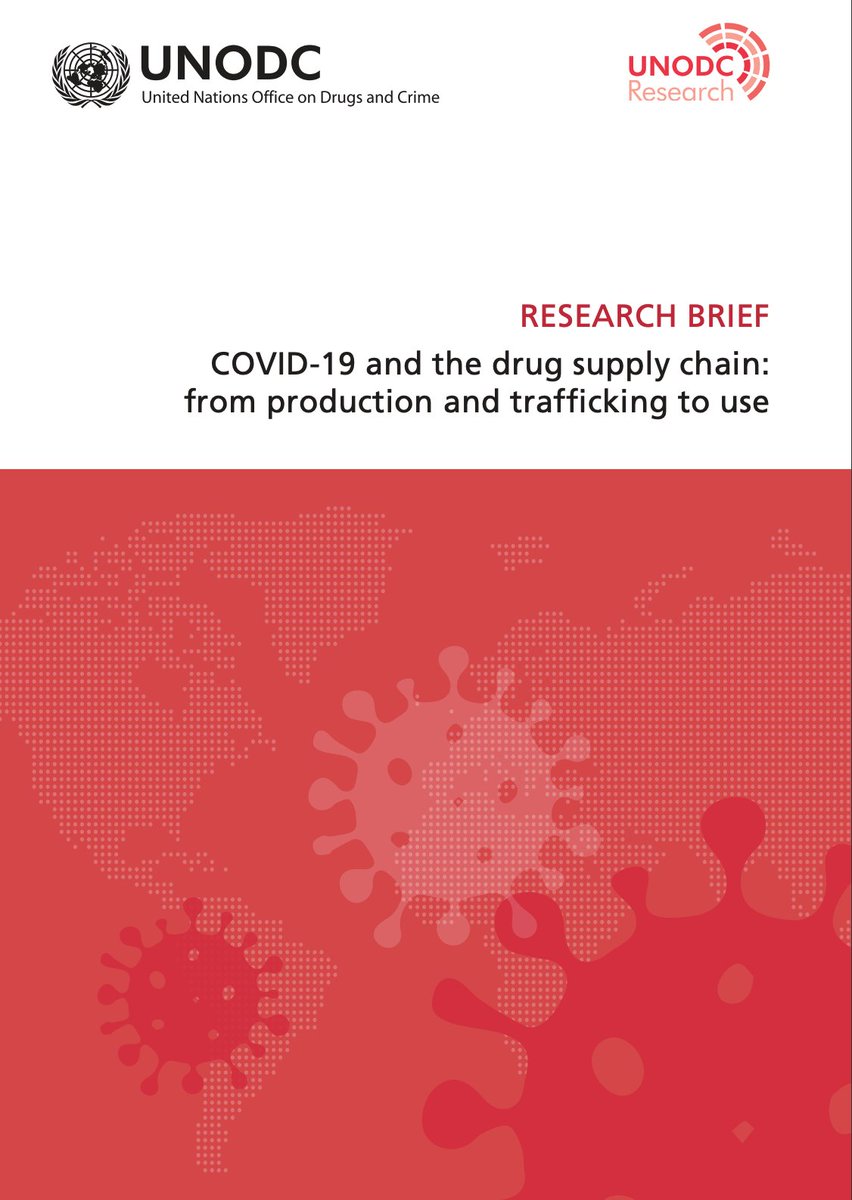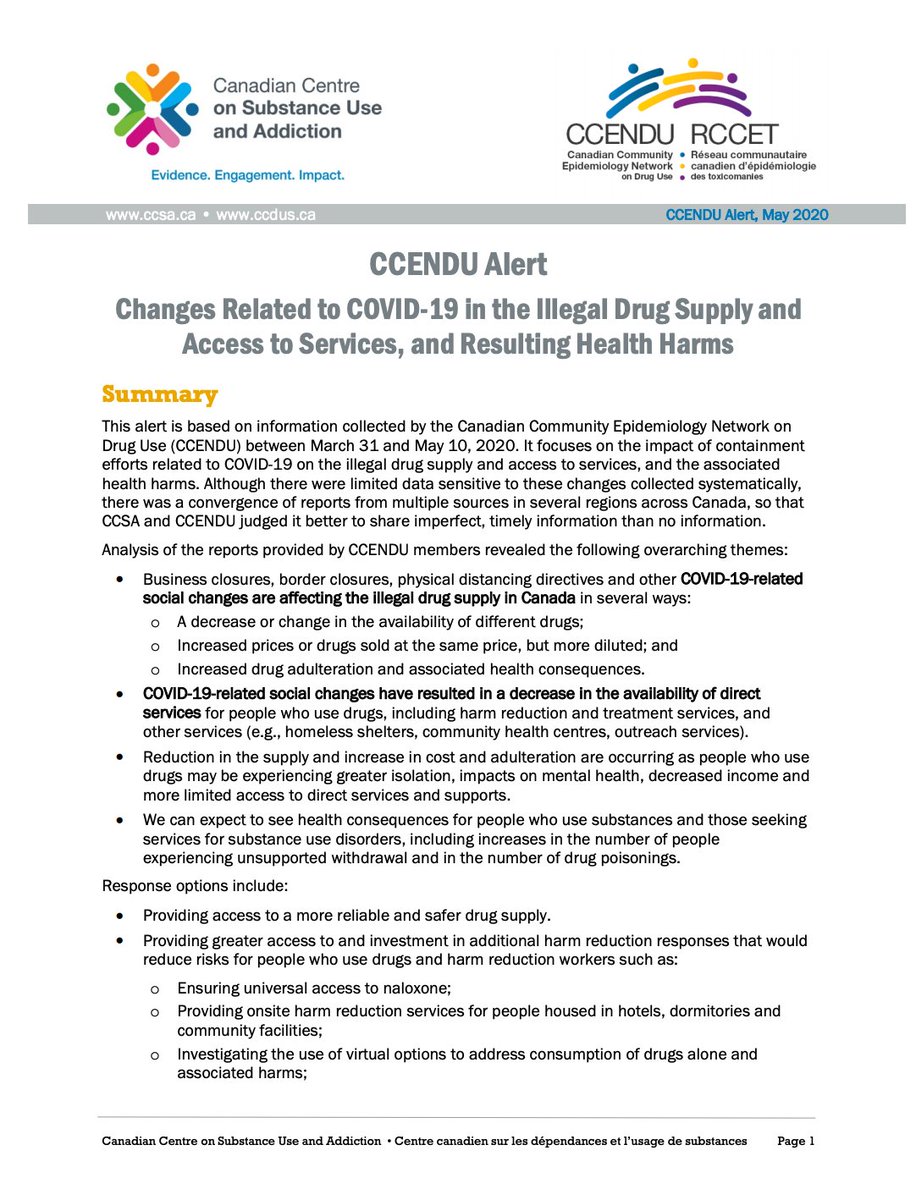Various policy responses can be debated, but it is misleading to claim that Alberta& #39;s illegal drug market has not become *significantly more dangerous* since illegal fentanyl started replacing diverted pharmaceuticals and heroin in 2013.
Since then, overdose mortality has skyrocketed in Alberta, BC, and elsewhere to the point where life expectancy in Canada stopped increasing for the first time in four decades in 2017.
Many experts are worried that COVID-19 related illegal drug supply disruptions, as documented by the United Nations Office on Drugs and Crime, will combine with physical distancing and other countermeasures to make an already dangerous situation worse. https://www.unodc.org/documents/data-and-analysis/covid/Covid-19-and-drug-supply-chain-Mai2020.pdf">https://www.unodc.org/documents...
Unlike other jurisdictions, Alberta has not released any 2020 data on overdose deaths, overdose-related EMS calls or emergency department visits. Until these data are available, we can& #39;t say for sure what the impact of COVID-19 has been drug-related morbidity and mortality here.
In the meantime, it is prudent to assume that spikes in overdose observed across Canada during COVID-19 are also happening here and making the situation even more dangerous. https://www.ccsa.ca/sites/default/files/2020-05/CCSA-COVID-19-CCENDU-Illegal-Drug-Supply-Alert-2020-en.pdf">https://www.ccsa.ca/sites/def...
Providing controlled access to prescribed medications as a strategy to reduce reliance on the contaminated illegal drug market has not yet been evaluated (though several pilot projects, funded by Health Canada, are ongoing). More about this concept here: https://www.bccsu.ca/wp-content/uploads/2020/04/Risk-Mitigation-in-the-Context-of-Dual-Public-Health-Emergencies-v1.5.pdf">https://www.bccsu.ca/wp-conten...
But evidence from the provision of other medications suggests that this strategy could be a potentially effective option for reducing overdose deaths, other health harms, and criminality for patients when 1st + 2nd line treatments are not successful or appropriate.
Interventions like naloxone, supervised consumption services, and opioid agonist treatments (buprenorphine, methadone, SROM, and iOAT) are helping to prevent some OD deaths.
But as we continue to lose an average of 2 Albertans a day to overdose, it is clear our efforts to date have been insufficient. Carefully implementing + evaluating new options to support people w/ addictions is the only way we will bring an end to the overdose epidemic here.

 Read on Twitter
Read on Twitter




